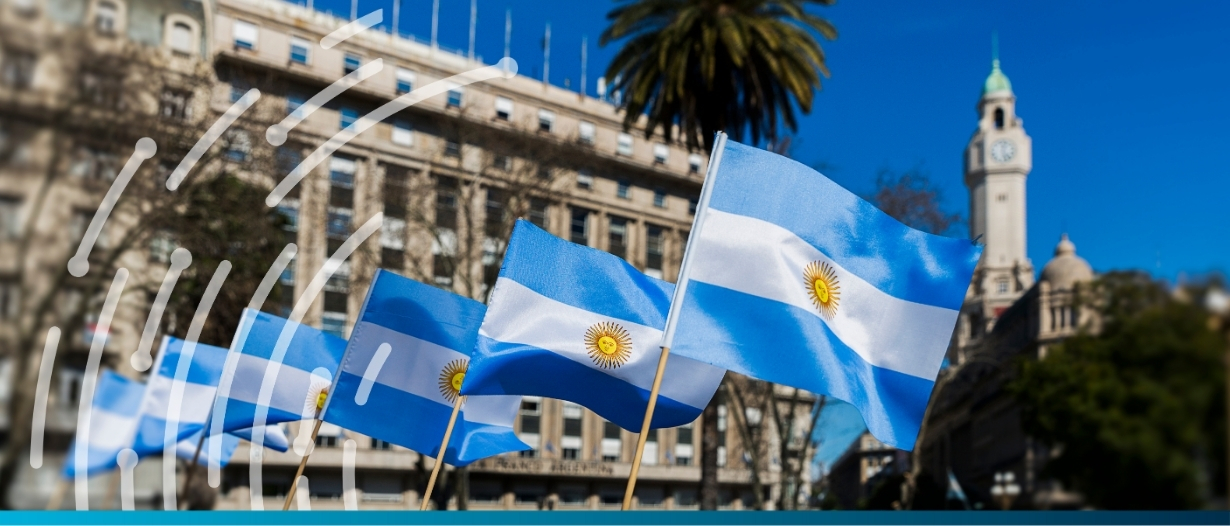Argentina announced yesterday it plans to deepen the Paraná, the continent’s second-longest river and a crucial shipping channel linking the South American continent to the Atlantic Ocean.
This comes just weeks after the country dropped export taxes for grains and oil on 27 January in an effort to help farmers hit by a drought which hit most of the country’s agricultural sector.
These are the latest signs of a country at a crossroads: once a major crop exporter, crumbling infrastructure and a lacklustre economy are seeing Argentina lag behind more advanced neighbours like Brazil.
Argentinian President Javier Milei announced yesterday that bidding was open for a 30-year contract to dredge the Paraná River, making the waterway deeper and wider. The Paraná is a river connecting Argentina’s major agricultural centres to the Atlantic, and is used to transport as much as 80% of all of Argentina’s crops travel on the river, many of which are destined for export. The Paraná also links Argentina to Brazil via the Rio Grande, linking Argentina to its most important trading partner.
Despite its importance, and despite a booming soy trade doubling in size in the past 20 years, the canal has not been deepened since 2006. Soybean meal is Argentina’s largest export, along with related products like soy oil and other crops. The country’s large agricultural production and the Paraná itself, offering immediate transport from the field to a major waterway, was what attracted many producers to Argentina, making the country the world’s largest exporter of soybean meal.
Now, however, degrading river conditions mean many ships can’t transit with a full load, instead needing to stop at a coastal port before continuing their travels on the Atlantic; despite precautions, about one ship a month gets stuck in river silt, causing long delays. Milei’s plans promise to widen and deepen the canal, facilitating trade, reducing delays and costs, and reassuring exporters that soy meal trade had a safe future in the country.
However, just one day after announcing the auction for the contract to deepen the river, Milei closed the bid, accusing the only company who submitted a proposal of competitor intimidation. This is likely to delay even further plans which have been in the works for years, and frustrate producers who have already endured droughts, delays, and fears of sanctions.
This comes as a drought in the middle of the Argentinian summer is hurting agricultural production across the country, where farmers are already struggling due to low global prices of key exports. The drought, caused by the same weather pattern that led to a 43% drop in agricultural production in 2023, could also bring the river to dangerously low levels, further impeding water transport of goods. To help struggling farmers and shore up foreign reserves, Milei announced in January that taxes on exports of oil and some agricultural products would be dropped until the end of the season in July 2025. Export taxes, as high as 30% for some of Argentina’s most important exports, have long been accused of stifling the economy and depressing foreign trade, but revenue from them is an important part of the Argentinian national budget.
Milei, in government for just over a year, has been trying to make the country competitive again, and is now turning his attention to international trade as a way to strengthen the national economy. A far-right leader intent on balancing the state’s budget through austerity, some of Milei’s policies have come under fire for increasing poverty rates and removing social welfare.
Among Milei’s proposed measures is dollarisation, which makes maintaining strong foreign reserves through trade all the more important. Milei’s election led to a surge in foreign investor confidence in Argentina, and his latest trade measures have seen Argentinian bonds surge in value.
As Trump’s tariffs threaten trade relationships and a potential break in the Israel-Palestine ceasefire could make trade routes dangerous again, international trade is getting more uncertain. This has led many countries to turn their attention to shoring up their own trade capabilities, especially to facilitate trade with their geographical and ideological neighbours.
At the same time, infrastructural issues have plagued ports in the Southern Hemisphere, with South Africa gaining attention last summer for its overwhelmed ports breaking down and causing delays. Especially for a channel as crucial to trade as the Paraná, maintaining infrastructure in working order is as essential as macroeconomic tools to preserve stability.























